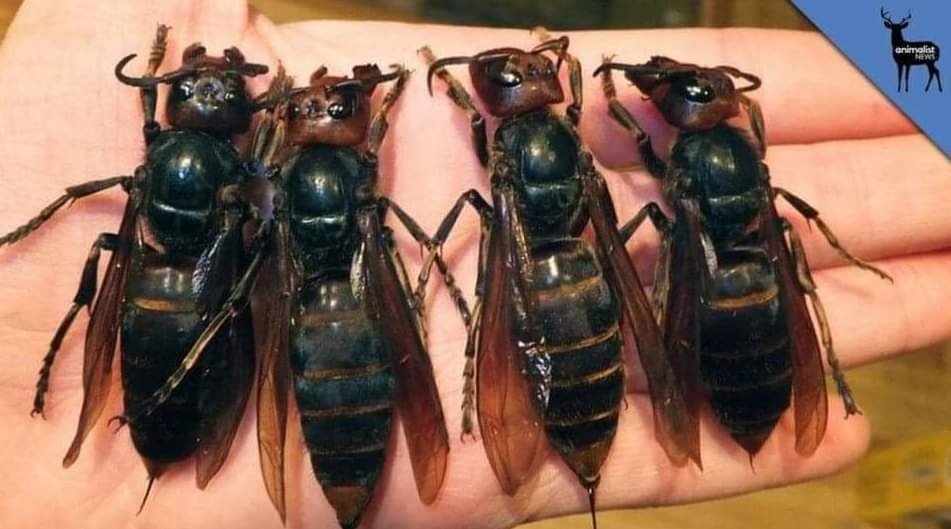An agricultural officer has raised the alarm after seeing a yellow-legged hornet in Savannah, Georgia. Unfortunately, these bugs are very good at killing beekeepers and other pollinators.
“This is the first time a live specimen of this species has been detected in the open United States,” Georgia’s agriculture department said after the USDA and the University of Georgia confirmed that the insect was there.
Bees with yellow legs, or Vespa velutina, live in Southeast Asia.
The Vespa mandarinia is related to the northern giant hornet and is commonly called the Asian giant hornet or, more terrifyingly, the “murder hornet” because it kills and destroys bee hives so badly.

Farmers and people who keep bees should be careful of hornets.
There are many industries that have to deal with the yellow-legged hornet, not just honey. Honey bees are very important for pollinating foods like oranges, almonds, and cherries.
Atlanta is known for its farming, which is why the state government has said, “It is imperative that these invasive pests are tracked and eradicated.”
The Food and Drug Administration said in 2018 that crops were worth about $15 billion more because bees pollinated them.
The agency says that about one-third of the food Americans eat comes from crops produced by honey bees. These include apples, melons, cranberries, pumpkins, squash, broccoli, and almonds.
The Georgia Department of Agriculture, the University of Georgia, and the Animal and Plant Health Inspection Service (APHIS) of the USDA are working together to find, track, and get rid of the new pollinator danger.
The recently spotted hornet has a dark abdomen with yellow bands that get wider towards the back. The tips of its legs are yellow. The government in Georgia has asked people to report any sightings they may have had.
These are not the wasps you’re looking for.
“Vespa are known as the ‘true hornets’ and are exceptional predators,” says Clemson University’s Land-Grant Press. This refers to the genus Vespa, which includes both the yellow-legged hornet and the northern giant hornet.
These wasps are not the same as those in North America. The common U.S. bug yellowjackets and the bald-faced hornet are both in the genus Vespa, as is the Asian hornet. Most importantly, these local bugs don’t fight bee hives in bloody battles.
“This species happens to prefer honey bees,” the extension office at the University of Florida said about yellow-legged hornets.
The two kinds of hornets that have come to North America and Europe cause a lot of problems for bee populations that haven’t evolved with the predators.
They are much bigger and stronger than honey bees, and their thick shells protect them from being stung.
They have their own groups, and when they find food, like a beehive, they use pheromones to get other hornets to come to their nests.
The Land-Grant Press says that hornets would collect bee eggs after killing the worker bees that were protecting the colony. “Most hornets eat the larvae of other insects, and many species of hornets go after the nests of other social bees and wasps,” the paper says.
Courtesy: timelesslife.info
